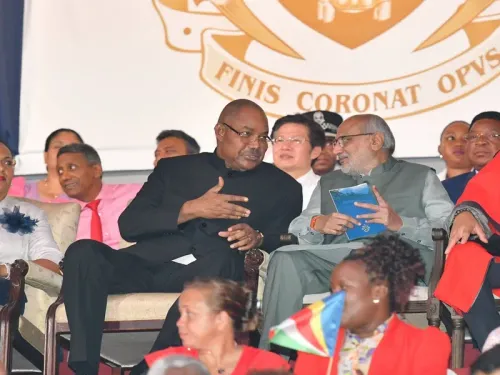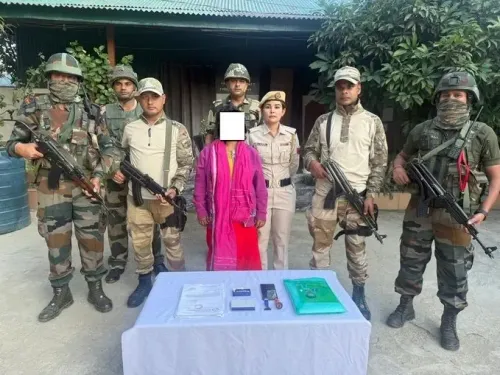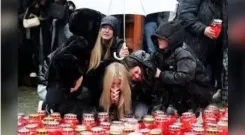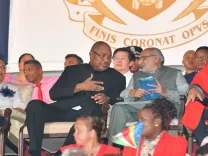Have Two Suspected JMB Members Been Arrested in Bengal's Birbhum?

Synopsis
Key Takeaways
- Two suspected JMB members arrested in Birbhum district.
- They were allegedly radicalizing local youth through social media.
- Seized materials link them to anti-national activities.
- Community reactions highlight the shock of their arrests.
- Concerns about communal tensions and extremist influence remain.
Kolkata, May 10 (NationPress) The West Bengal Police have confirmed that two individuals, suspected to be affiliated with the Bangladesh-based extremist organization Jamaat-ul-Mujahideen Bangladesh (JMB), were apprehended in Nalhati, located in the Birbhum district.
The suspects, identified as Aazmal Hossain (28) and Saheb Ali Khan (27), were taken into custody on Friday.
While Hossain resides in Nalhati, Khan is from Murarai, both areas within Birbhum.
According to district police sources, the duo had been primarily operating from Nalhati, aiming to recruit and radicalize local Muslim youth to join various JMB sleeper cells.
They allegedly disseminated jihadi messages among the youth, utilizing encrypted communication channels on social media.
Both suspects were brought before a district court in Birbhum on Friday and have been placed in 14 days of police custody.
Initial investigations suggest that the arrested individuals harbored intentions to incite communal unrest in various areas of the state through their indoctrinated recruits.
Authorities seized multiple digital and printed documents from their possession, indicating their involvement in anti-national activities and connections with JMB.
Additionally, Islamic literature published in Bangladesh was found among the belongings of the two men.
Despite these serious allegations, the arrests have shocked their neighbors, who regarded both men as well-mannered and not involved in any local disputes.
This development follows intelligence reports received by the Union Home Ministry regarding the suspected role of illegal Bangladeshi infiltrators in the violence and vandalism that occurred in the minority-dominated Murshidabad district amid protests against the recently updated Waqf (Amendment) Act.
Three Bangladesh-based extremist groups are believed to be active in this district, which shares a border with Bangladesh: JMB, Hizb-ut-Tahrir (HUT), and Ansarullah Bangla Team (ABT).









